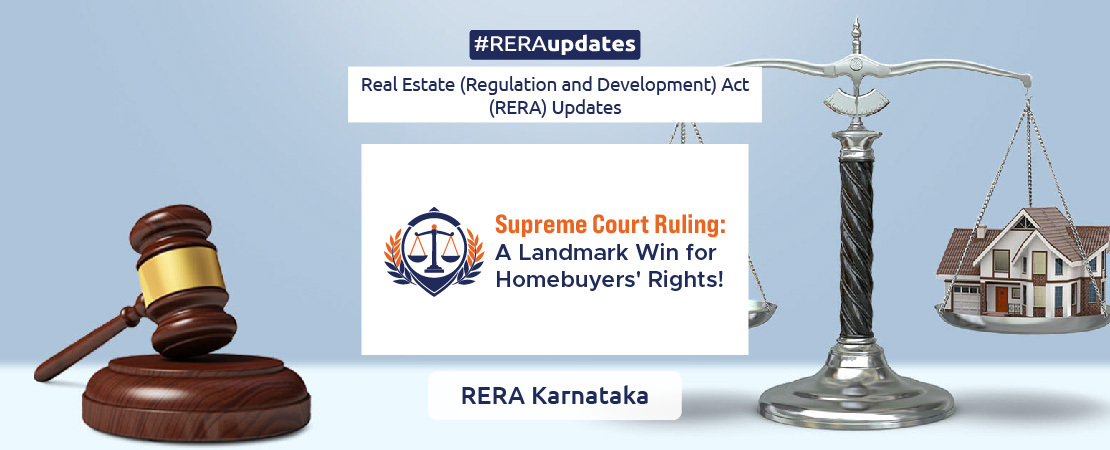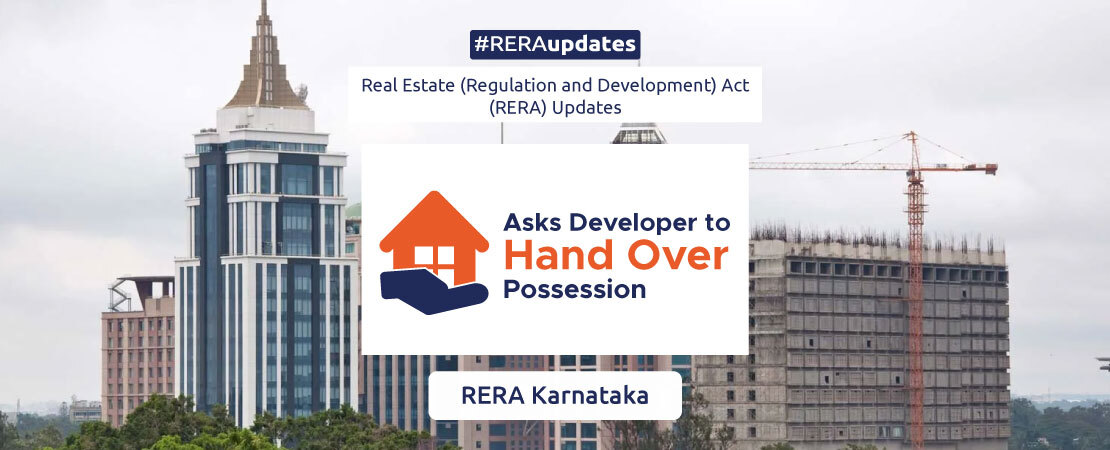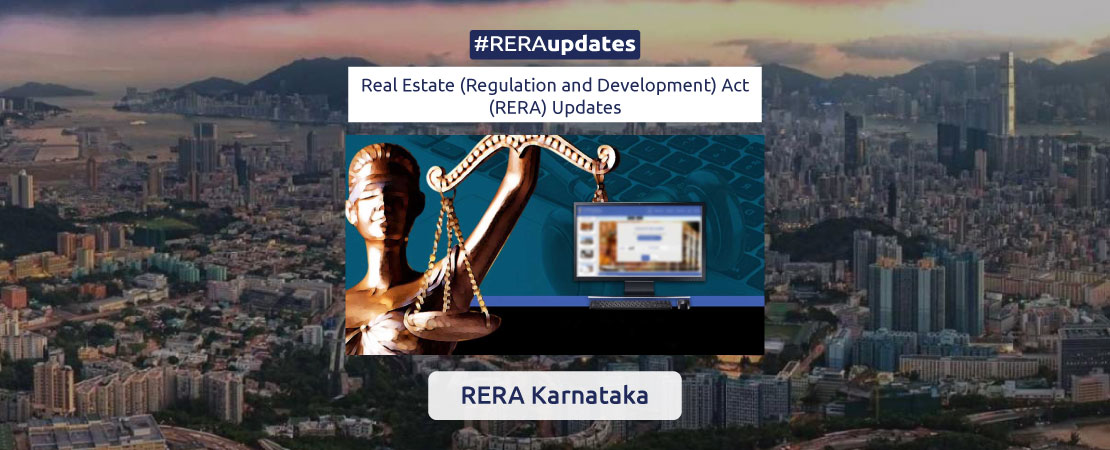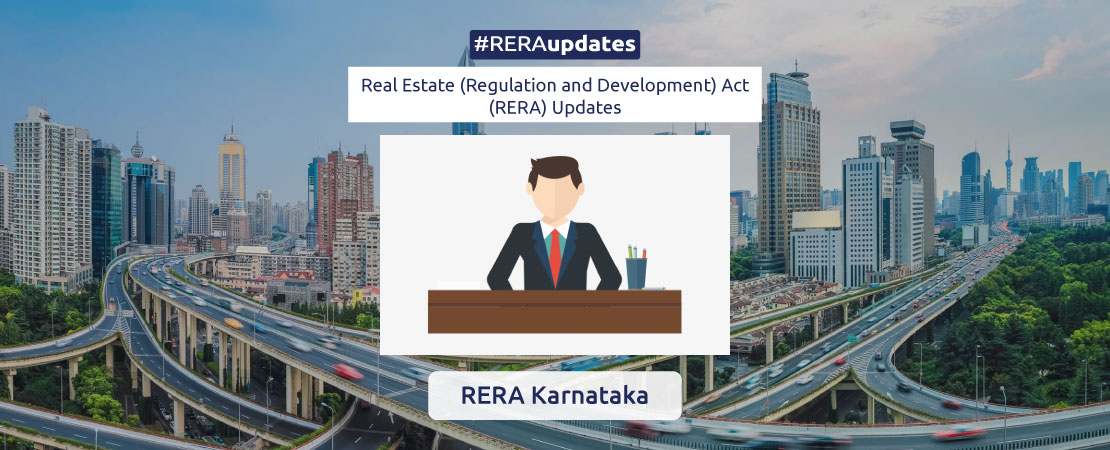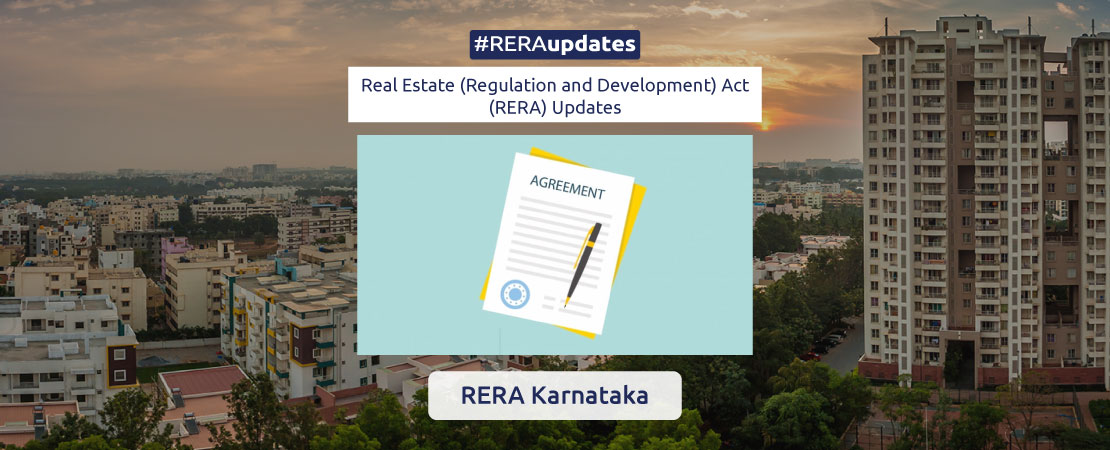The Karnataka High Court (HC) has quashed an order passed by the Karnataka Real Estate Regulatory Authority (KRERA) that asked the developer, Provident Housing, to refund the entire booking amount to the homebuyer after the sale agreement was mutually cancelled following a dispute over the title of the land.
In the judgement, the HC allowed the writ petition filed by the developer and quashed the order for the refund that KRERA had issued in September 2020: “The judgment/order dated 30.09.2020 passed by the Karnataka Real Estate Regulatory Authority, Bangalore, stands quashed.”
The project had obtained two partial occupancy certificates from the Bengaluru Development Authority (BDA) in 2015 and 2017.
The HC judgment said that KRERA had no jurisdiction over projects granted partial occupation certificate (OC) before the enactment of the RERA Act.
The court found that by the time the Act came into force, the construction was no longer an ongoing project.
The order defined an ongoing project as, “An ongoing project would mean where the development of a project is going on, for which a completion certificate has not been issued.”
“The issuance of occupancy certificates, albeit partial, before the Act came into force is not in dispute. Therefore, the project loses its character, as an ongoing project in terms of Rule 4 of the (KRERA) Rules,” the order added.
“Therefore, the determination by the Authority was without jurisdiction and if it is an act without jurisdiction, it is non est in the eye of the law, and if it is non est in the eye of the law, it is rendered unsustainable and requires to be obliterated,” the order said. A non est order is one that can be ignored.
Advocate H Kumar, who argued in favour of the homebuyer, said, “The court has not taken into consideration the fact that partial OC is sufficient to exempt from registration (meaning that this is an ongoing project). Prima facie, the court has not dealt with the matter in depth.”
The case
In September 2014, homebuyer Shyama Shetty booked an apartment at Provident Sunworth. However, in March 2017, Shetty decided to cancel the agreement on the ground that the land had not been legally acquired by the developer.
Shetty said that the state government wanted to take possession of the land his apartment stood on in Venkatapura village in Kengeri Hobli, and the developer moved the HC for a stay on the matter.
In June 2016, the HC ordered interim relief and directed the state government and the developer “to maintain status-quo,” the court order accessed by Moneycontrol showed.
“Despite several requests, the developer did not provide me with letters from the competent authority concerning the acquisition of land. Nor did they reply to my queries,” Shetty added.
Subsequently, on Shetty’s request, the developer cancelled the agreement and refunded Rs 17.5 lakh out of around Rs 24 lakhs Shetty had paid. The developer kept about Rs 6.8 lakh as cancellation charges and taxes, including GST.
At this point, the homebuyer moved the KRERA seeking relief and a refund of the money the developer had deducted.
KRERA findings
KRERA noted that the developer had received the partial OC in March 2017, before the enactment of RERA in the state.
However, KRERA noted per a Haryana RERA order in 2018 it was confirmed that the domain of the authority extended to projects that had not been registered. “Accordingly, the projects that have not been registered but are registrable, in case of violation of Section 3, come within the domain of the authority and the authority is well within its power to initiate legal proceedings,” the Haryana RERA order said.
The order further added that if a complaint in such a case was not entertained by the authority against an unscrupulous promoter/developer, it would “frustrate” the purpose of the Act to provide relief to homebuyers.
KRERA noted that the developer had transacted with the homebuyer even after the RERA Act was enacted in the state. “Hence the cause of action to file this complaint was alive even after the coming into force of this Act. The question of maintainability as contented by the developer has no basis,” the order stated.
KRERA concluded that the developer had returned a major portion of the amount but withheld a part of it while failing to give reasons for the same. Additionally, the order asked the developer to return the due amount within 60 days.
Karnataka HC findings
Karnataka HC cited the Supreme Court (SC) judgment in Newtech Promoters and Developers vs the State of Uttar Pradesh (UP) to clarify the “ongoing” status of a project. The SC order said that in cases where only the issuance of a completion certificate was pending, the legislature intended that even those projects have to be registered under the RERA Act.
The Newtech judgment further added that Section 3(2)(b) of RERA Act specifically excludes projects where a completion certificate has been received before the commencement of the Act and which need not be registered under the Act.
The Karnataka HC added that, “With regard to the explanation of ‘ongoing project’ under the rules which exempts the application of the Act, since a partial occupancy certificate was issued prior to coming into force of the Act, the complaint was not maintainable before the Authority.”
Thus, the court concluded that, “The order passed by the Authority is without jurisdiction and a nullity in law.”
Diverse judgements on similar cases
Right to Information (RTI) activist and Bangalore City Flat Owners’ Welfare Association President Anil Kalgi cited an observation in the order that read, “If the Authority had no jurisdiction to pass the order, the developer’s petition (against paying the refund) becomes maintainable.” Kalgi added: “The interpretation of this can be diverse. The HC order did not expand on the validity of the partial OC. If the project was complete, why was a partial OC obtained? The homebuyer can appeal again,” he added.
In Karnataka, several courts and KRERA orders have challenged the validity of partial OCs, as according to BBMP (Bruhat Bengaluru Mahanagara Palike) Byelaws, 2003, partial OCs can only be granted for certain floors in a project. This has also been laid down in a 2013 HC order in the case of IBC Knowledge Park on Bannerghatta Main Road, Bengaluru.
Pointing to a March 11, 2022, Karnataka HC ruling in Total Environment Building vs. Verghese Stephen, advocate Chaitanya SG said that there was no concept of a partial OC under RERA. Additionally, “The HC has ruled that no person shall occupy a building until a complete OC has been granted,” he explained.
Advocate Vittal BR, added: “Diverse judgements on similar issues will tend to confuse homebuyers, and more importantly, the future legal discourse. The SC clearly states that similar cases must be treated alike.”
Chaitanya said that under RERA Act Chapter II (3), whether a construction was an “ongoing project” or not was decided by a completion certificate. “The central Act does not refer to an OC for defining an ongoing project. The central RERA Act lays down model rules on the basis of which states notify their own rules. In which case, can states dilute or override central rules?” he added.
It is unclear whether in the case of Provident Sunworth the partial OC was obtained for certain floors or the entire project.
Source: https://www.moneycontrol.com/news/business/karnataka-rera-has-no-jurisdiction-over-project-granted-partial-oc-before-enactment-of-rera-karnataka-hc-9824211.html

